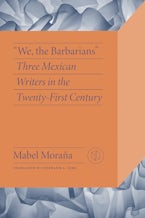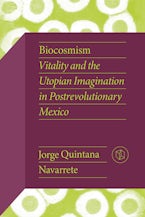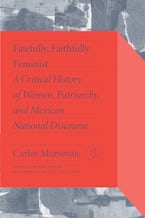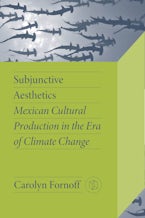- Home
- Maximilian, Mexico, and the Invention of Empire
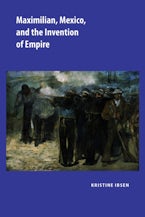
Maximilian, Mexico, and the Invention of Empire
232 Pages, 6in x 9in
In Maximilian, Mexico, and the Invention of Empire, the cultural legacy of the Second Mexican Empire is examined as essential to modern understandings of empire and nation. The Second Empire refers to the brief period (1864-1867) during which Napoleon III sought to consolidate his control in Mexico by installing an Austrian archduke as Emperor Maximilian I of Mexico. Far from fading into obscurity upon Maximilian's fall and execution, however, the episode has continued to resonate in the cultural imaginary.
That resonance becomes the theme in this book, as the author skillfully crafts a cross-disciplinary analysis that demonstrates how resistance to the Empire helped consolidate Mexican political and cultural identity, as well as how this episode was appropriated outside Mexico as a symbol of popular triumph over autocratic rule. The book begins with a discussion of empire and nation in visual culture and the opposition press during the occupation, and subsequent chapters are dedicated to Edouard Manet's Execution of Maximilian series (1867-1869), the antifascist film Juarez (USA, 1939), and Mexican Fernando del Paso's novel Noticias del Imperio (1987). By examining the multiple modes through which history may be narrated, this book elucidates how creative works create meaning and effect political change.
That resonance becomes the theme in this book, as the author skillfully crafts a cross-disciplinary analysis that demonstrates how resistance to the Empire helped consolidate Mexican political and cultural identity, as well as how this episode was appropriated outside Mexico as a symbol of popular triumph over autocratic rule. The book begins with a discussion of empire and nation in visual culture and the opposition press during the occupation, and subsequent chapters are dedicated to Edouard Manet's Execution of Maximilian series (1867-1869), the antifascist film Juarez (USA, 1939), and Mexican Fernando del Paso's novel Noticias del Imperio (1987). By examining the multiple modes through which history may be narrated, this book elucidates how creative works create meaning and effect political change.
Kristine Ibsen, Michael P. Grace II Professor of Latin American Studies at the University of Notre Dame, is author of The Other Mirror: Women's Narrative in Mexico, Women's Spiritual Autobiography in Colonial Spanish America, and Memoria y deseo: Carlos Fuentes y el pacto de la lectura.
Ibsen has presented academic historians with a new look at the Second Empire of Napoleon III and the doomed empire of Maximilian as depicted in visual art, film, and literature.
--Hispanic American Historical Review

